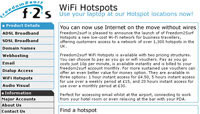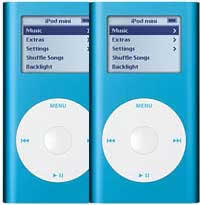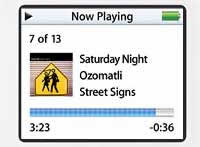 Last week, 250 executives from advertising agencies, game developers and publishers swarmed into the first annual Advertising in Games Forum on 14 April 2005 in New York City.
Last week, 250 executives from advertising agencies, game developers and publishers swarmed into the first annual Advertising in Games Forum on 14 April 2005 in New York City.
The audience, primarily made up of sharp-suited, silver tongued advertising agency executives, were there to discover more about market opportunities and expectations within the game industry.
According to the organisers, The Game Initiative, attendees were treated to a feast of ‘key facts, figures and estimates’ spun out by leading industry experts at the forum.
In a bullet point-laden onslaught of PowerPoint presentations, these key facts emerged:
According to the Yankee Group, advertising in games is expected to rise to US$800 million in 2009 from nearly US$120 million in 2004.
Around US$266 million – that’s more than one-third of advertising in games in 2009 – will come from (wait for it) “advergaming.”
 For the benefit of buzzword-deficient execs, Yankee Group senior analyst Mike Goodman explained that this hideous word describes what you get when advertisers create a game around a product rather than place their brands within a well-known title.
For the benefit of buzzword-deficient execs, Yankee Group senior analyst Mike Goodman explained that this hideous word describes what you get when advertisers create a game around a product rather than place their brands within a well-known title.
Mitch Davis, chief executive of video game ad network Massive Inc., whipped the watching execs into a frenzy of monetary expectation when he revealed that the audience video game advertising would top US$1 billion in the United States by 2010, and approach US$2.5 billion worldwide.
Anita Frazier, Entertainment Industry Analyst, NPD Group opened up her big book marked ‘Facts’ and informed the Advertising In Games Forum audience that there are 100 million game capable cell phones currently in the Marketplace – with 65% of the population owning a cell phone.
The sound of keenly rubbing palms grew to a crescendo as Frazier announced that within 16 months all cell phones in the marketplace should be game capable and thus brimming with cash-raking, game-downloading potential.
 Fact-bloated attendees also learned that the top selling 2004 game titles (according to the NPD Group) were:
Fact-bloated attendees also learned that the top selling 2004 game titles (according to the NPD Group) were:
- Grand Theft Auto San Andreas – 5.5 million sold since launch
- Halo 2 on X box – 4.5 million units sold since launch
- Madden NFL 2004 on PS 2 – 3.5 million units sold since launch
- ESPN NFL 2K5 -1.6 million units sold since launch
- Need for Speed Underground 2 -1.7 million units since launch
The top selling PC title of 2004 was Sims 2 with 750,000 units sold.
The ‘best selling game title of all time’ title goes to Grand Theft Auto Vice City with a massive 6.5 million units shifted, with Super Mario 64 on the N64 coming in second with an impressive 6.0 million units.
 Despite being judged the fourth most digitally-savvy nation in Europe, it seems that 40% of the UK adult population don’t know their wi-fi from their waffles.
Despite being judged the fourth most digitally-savvy nation in Europe, it seems that 40% of the UK adult population don’t know their wi-fi from their waffles. A smaller group (15%) expected their usage to increase dramatically in 2005, with the 16-24yr age group expected to increase its usage the most (52%) compared to 34 per cent of the 35-44 age group.
A smaller group (15%) expected their usage to increase dramatically in 2005, with the 16-24yr age group expected to increase its usage the most (52%) compared to 34 per cent of the 35-44 age group. Geographically, London takes the honours as the King WiFi hotspot of the UK with a higher awareness and usage of WiFi (hardly surprising since there are more hotspots in London than anywhere else in the UK) whilst residents oop North in Yorkshire are the least Wi-Fi savvy.
Geographically, London takes the honours as the King WiFi hotspot of the UK with a higher awareness and usage of WiFi (hardly surprising since there are more hotspots in London than anywhere else in the UK) whilst residents oop North in Yorkshire are the least Wi-Fi savvy. British Sky Broadcasting (BSkyB) has announced that it has signed a number of further contracts with technology and equipment suppliers ahead of the forthcoming launch of its High-Definition Television (HDTV) service.
British Sky Broadcasting (BSkyB) has announced that it has signed a number of further contracts with technology and equipment suppliers ahead of the forthcoming launch of its High-Definition Television (HDTV) service. The studio will be fitted out with Tandberg Television HD video head-end with statistical multiplexing with Tandberg EN5990 HD MPEG-4 AVC enabling efficient bandwidth utilisation and high picture quality.
The studio will be fitted out with Tandberg Television HD video head-end with statistical multiplexing with Tandberg EN5990 HD MPEG-4 AVC enabling efficient bandwidth utilisation and high picture quality. HDMI delivers the best possible picture quality to a HD display by maintaining an all-digital connection to DVI equipped displays possible using a suitable adapter cable.
HDMI delivers the best possible picture quality to a HD display by maintaining an all-digital connection to DVI equipped displays possible using a suitable adapter cable. A UK train operator has claimed that its passengers will be able to wirelessly access the Internet on all its trains by May 2007 after widespread passenger take-up of the service.
A UK train operator has claimed that its passengers will be able to wirelessly access the Internet on all its trains by May 2007 after widespread passenger take-up of the service. GNER’s chief operating officer Jonathan Metcalfe enthused about onboard Wi-Fi, claiming that it would make the travelling experience “more enjoyable” for consumers and that it would “encourage more people to choose rail instead of driving or flying.”
GNER’s chief operating officer Jonathan Metcalfe enthused about onboard Wi-Fi, claiming that it would make the travelling experience “more enjoyable” for consumers and that it would “encourage more people to choose rail instead of driving or flying.” Napster may have a new headache on its hands, with a DRM hack recently surfacing.
Napster may have a new headache on its hands, with a DRM hack recently surfacing. The tool is reported to be unable to circumvent Napster To Go songs using Janus DRM (WMA DRM v10) which is different from the DRM applied to Light and Premium songs.
The tool is reported to be unable to circumvent Napster To Go songs using Janus DRM (WMA DRM v10) which is different from the DRM applied to Light and Premium songs. The open source Web browser FireFox, has experienced a humongous surge in popularity over the last year according to a report by Nielsen//NetRatings.
The open source Web browser FireFox, has experienced a humongous surge in popularity over the last year according to a report by Nielsen//NetRatings. “FireFox gives Web surfers a simple tool that blocks unsolicited windows, is less susceptible to virus attacks and offers a unique means of navigating multiple sites within a single browser”, Cassar added.
“FireFox gives Web surfers a simple tool that blocks unsolicited windows, is less susceptible to virus attacks and offers a unique means of navigating multiple sites within a single browser”, Cassar added. Although Microsoft is expected to adopt many of FireFox’s features in its new Internet Explorer version 7.0 (expected this summer), the browser’s exponential growth may force lazy coders to ensure that their sites are also compatible with the upstart browser.
Although Microsoft is expected to adopt many of FireFox’s features in its new Internet Explorer version 7.0 (expected this summer), the browser’s exponential growth may force lazy coders to ensure that their sites are also compatible with the upstart browser. The BBC has moved a step closer to establishing a ‘public domain of audio-visual material’ with the launch of its ‘Creative Archive’.
The BBC has moved a step closer to establishing a ‘public domain of audio-visual material’ with the launch of its ‘Creative Archive’. Stratospheric iPod sales send Apple executives into raptures of hugging joy, with profits almost quadrupling in a year.
Stratospheric iPod sales send Apple executives into raptures of hugging joy, with profits almost quadrupling in a year. The Power Mac desktop computers were among the worst performers, with year-over-year shipments declining by 19 per cent.
The Power Mac desktop computers were among the worst performers, with year-over-year shipments declining by 19 per cent. Although sales of iPods increased by 16 per cent, revenue from the product dropped by 16 per cent after Apple added the lower-cost iPod Shuffle to its range.
Although sales of iPods increased by 16 per cent, revenue from the product dropped by 16 per cent after Apple added the lower-cost iPod Shuffle to its range.